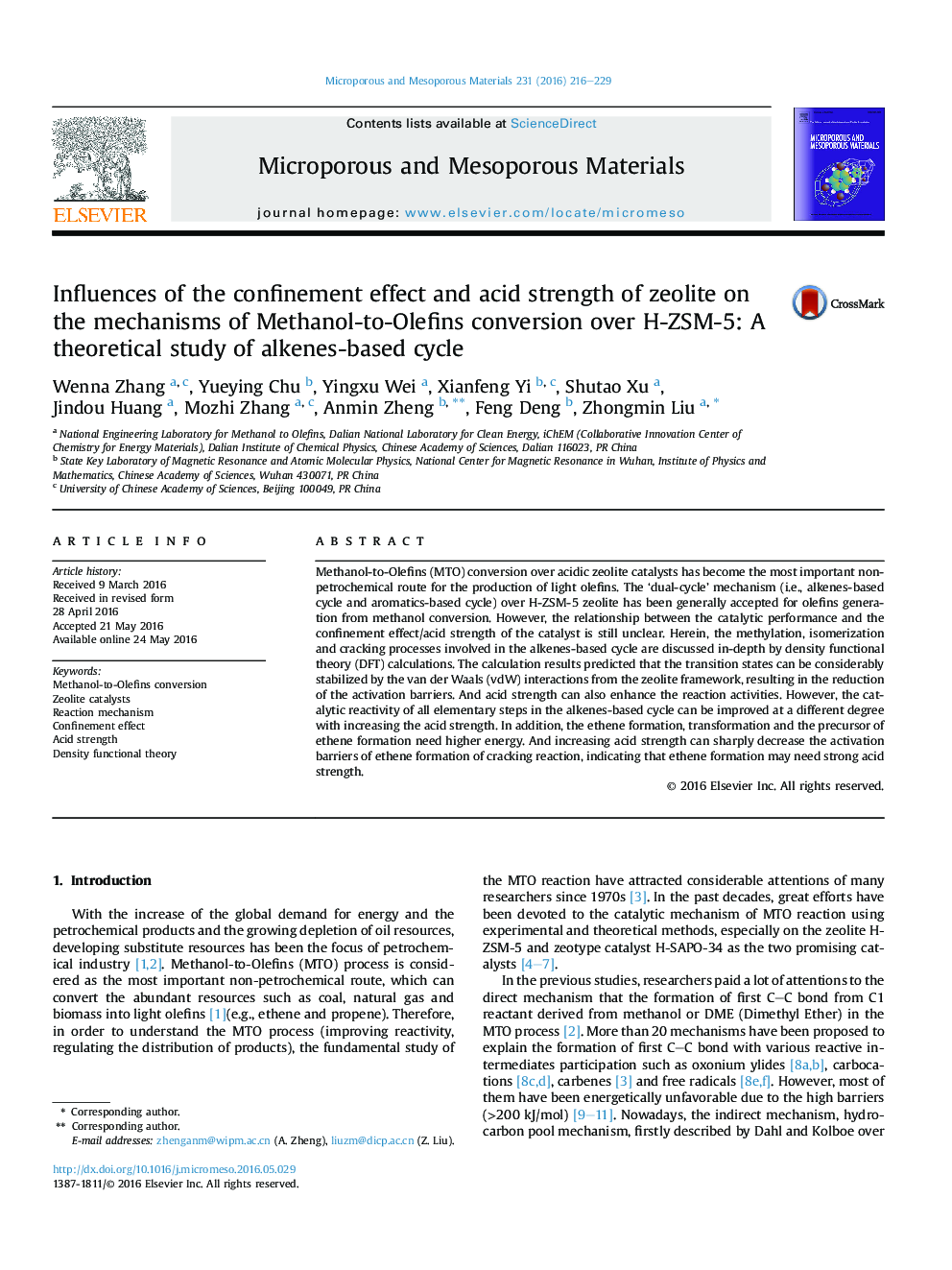| Article ID | Journal | Published Year | Pages | File Type |
|---|---|---|---|---|
| 71997 | Microporous and Mesoporous Materials | 2016 | 14 Pages |
•The reactions involved in the alkenes-based cycle in MTO reaction were discussed in-depth by theoretical calculations.•Confinement effect from the zeolite framework can strongly stabilize the transition states by the vdW interactions.•Acid strength can effectively enhance the catalytic activities by decreasing the reaction barriers.•The reactions related to ethene formation and transform need overcome higher barriers in the alkenes-based cycle.
Methanol-to-Olefins (MTO) conversion over acidic zeolite catalysts has become the most important non-petrochemical route for the production of light olefins. The ‘dual-cycle’ mechanism (i.e., alkenes-based cycle and aromatics-based cycle) over H-ZSM-5 zeolite has been generally accepted for olefins generation from methanol conversion. However, the relationship between the catalytic performance and the confinement effect/acid strength of the catalyst is still unclear. Herein, the methylation, isomerization and cracking processes involved in the alkenes-based cycle are discussed in-depth by density functional theory (DFT) calculations. The calculation results predicted that the transition states can be considerably stabilized by the van der Waals (vdW) interactions from the zeolite framework, resulting in the reduction of the activation barriers. And acid strength can also enhance the reaction activities. However, the catalytic reactivity of all elementary steps in the alkenes-based cycle can be improved at a different degree with increasing the acid strength. In addition, the ethene formation, transformation and the precursor of ethene formation need higher energy. And increasing acid strength can sharply decrease the activation barriers of ethene formation of cracking reaction, indicating that ethene formation may need strong acid strength.
Graphical abstractThe methylation, isomerization and cracking processes involved in the alkenes-based cycle of Methanol-to-Olefins conversion (MTO) on H-ZSM-5 are discussed in-depth by density functional theory calculations. The transition states can be considerably strongly stabilized by the van der Waals (vdW) interactions from the zeolite framework, and acid strength can also effectively enhance the reaction activities. In addition, the ethene formation, transform and the precursor of ethene formation need higher energy.Figure optionsDownload full-size imageDownload as PowerPoint slide
